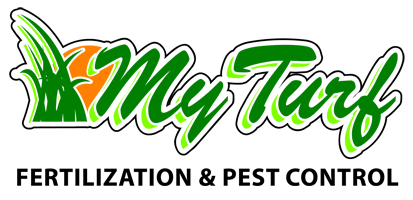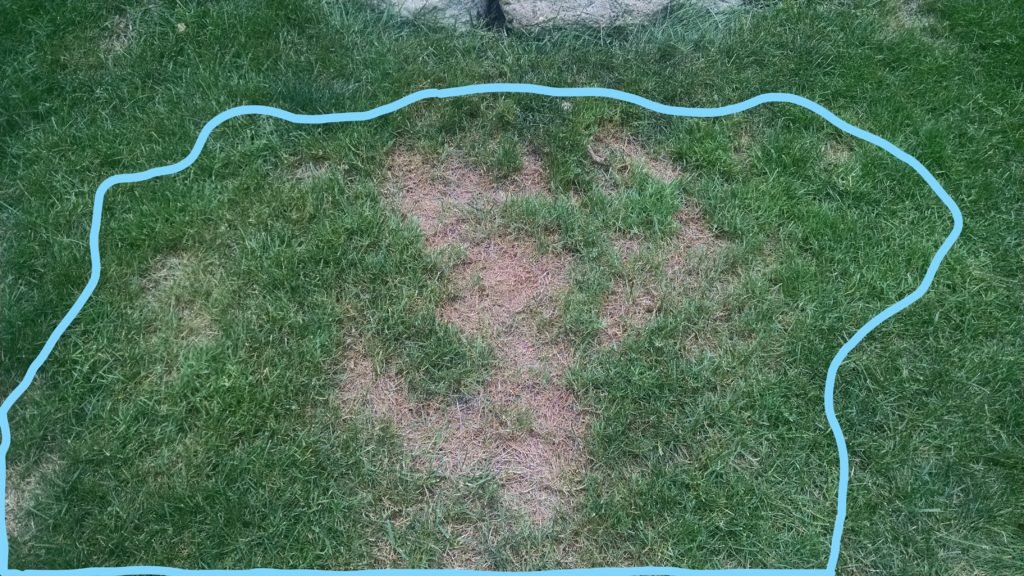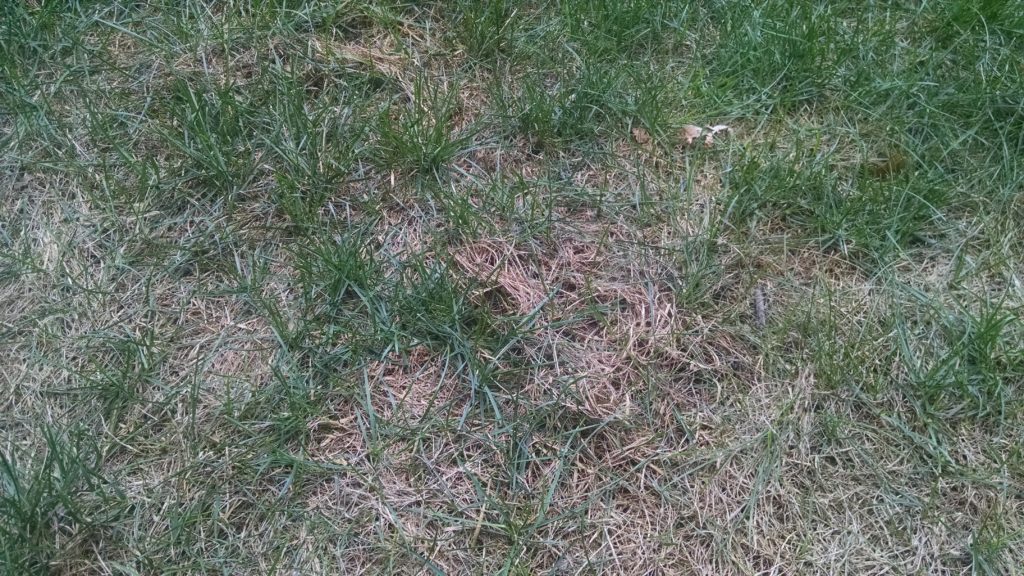The past few weeks have been a bit stressful on lawns so this change in weather is welcome. In Grand Rapids in the month of July we had only 1.12″ of rain which was 2.66″ below average. One issue I have seen pop up in the most recent dry spell is that some areas of Annual Bluegrass or poa annua are dying out in the heat. Annual Bluegrass is a junk variety of grass that blows or spreads into residential turf here in West Michigan. It is not included in seed mixtures, and was never planted in your lawn like Kentucky Bluegrass was. Annual Bluegrass has a very shallow root system, and is therefore quite weak and is not very drought tolerant or disease resistant. In good growing conditions you may not know it is even there except for by it’s lighter color and the heavy seed head that it produces in the spring. After this past dry spell I have seen it die out on several lawns. This doesn’t happen every year but with the right conditions it can. Annual Bluegrass is really not an annual here in West Michigan since it doesn’t typically get hot enough in the Summer to die out, or cold enough in the Winter to die out. Annual Bluegrass loves lots of moisture, cool weather, and shade, but is aggressive enough that it can compete just about anywhere. In the first picture you can see the areas of annual bluegrass circled look lighter in color and much of it has burned out while the other cool season grass mixture surrounding it is unaffected. If you look closely in the second picture you can see it is quite obvious that the affected grass is much rougher and more stringy than typical cool season grasses. It almost has the look and feel of pine straw.
Once this happens you are left with two choices. You can either let it go and unfortunately it will grow back from it’s own seed that it has produced in previous years, or you could take the opportunity to rake out the areas and seed them with a good quality seed mixture to try to overcome the annual bluegrass and keep it from coming back. Reseeding the spots is definitely the preferred method to help control this grass on a longer term basis. As always, please call or email if you have any questions. 616-813-3135 or office@myturfllc.com


